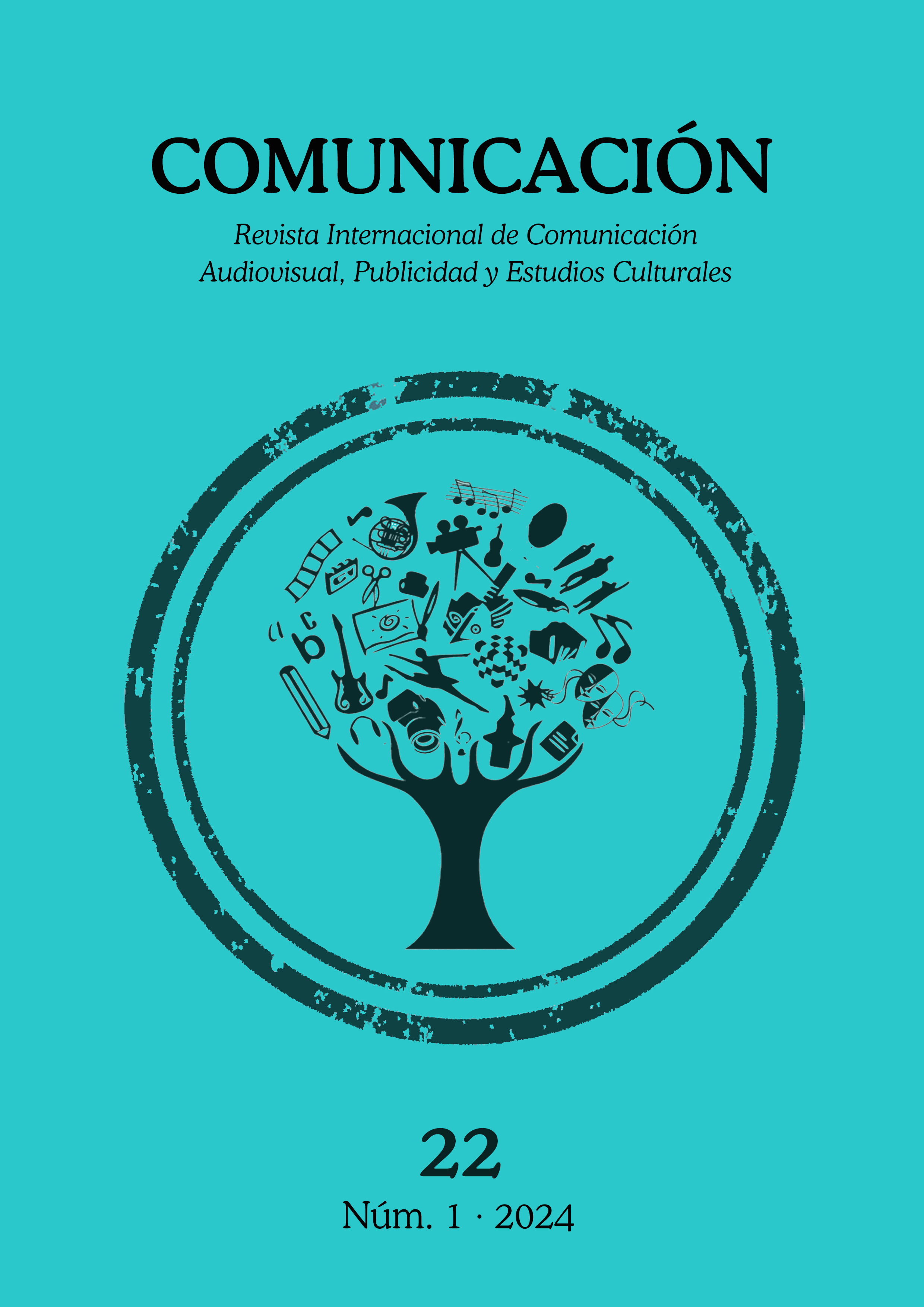Resumen
Uno de los fenómenos de la cultura popular más importantes del siglo XXI es el auge de las películas de superhéroes. De subgénero maldito a colección de éxitos de taquilla, estos films han resultado ser fundamentales para estudiar el impacto del cine en nuestra forma de ver el mundo e interpretar, a posteriori, eventos del mundo real. El Universo Cinematográfico Marvel es, no solo la marca más reconocida a la hora de hablar de estas películas sino el ejemplo más claro de franquicia transmedia exitosa. En este artículo queremos analizar el UCM dentro de los parámetros de la geopolítica de la cultura popular para averiguar cómo estos films representan y hablan de aspectos sociopolíticos que se transmiten al conjunto de la audiencia. Para ello, y a través de una metodología interdisciplinar, examinaremos como construyen un discurso de recreación de la realidad en el que, apoyándose en su carácter de narraciones fantásticas, reflexionan sobre el terrorismo, las relaciones internacionales o el cambio climático
Citas
Byman, Daniel (2008). An Autopsy of the Iraq Debacle: Policy Failure or Bridge Too Far? Security Studies, 17(4), 599-643. https://doi.org/10.1080/09636410802507974
Boggs, Carl y Pollard, Tom (2007). The Hollywood War Machine: U.S. Militarism and Popular Culture. Paradigm.
Carney, Sean (2005). The Function of the Superhero at the Present Time. Iowa Journal of Cultural Studies, 6, 100-117. https://doi.org/10.17077/2168-569X.1127
Casetti, Francesco y DiChio, Federico (1991). Cómo analizar un Film. Paidos.
Caso, Federica y Hamilton, Caitlin. (2015). Introduction. En Federica Caso y Caitlin Hamilton (coords.), Popular Culture and World Politics: Theories, Methods, Pedagogies (pp. 1-9). E-international Relations.
Costello, Matthew (2009). Secret Identity Crisis: Comic Books & the Unmasking of Cold War America. Continuum.
Daniels, Lee (1988). Comix: A History of Comic Books in America. Bonanza.
D’Arcus, Bruce (2014). Extraordinary Rendition, Law and the Spatial Architecture of Rights. ACME: An International Journal for Critical Geographies, 13, 79-99.
Di Paolo, Matt (2011). War, Politics and Superheroes: Ethics and Propaganda in Comics and Film. McFarland.
Dittmer, Jason (2007). Retconning America: Captain America in the Wake of World War II and the McCarthy Hearings. En T. Wandtke (coord.), The Amazing Transforming Superhero! Essays on the Revision of Characters in Comic Books, Film and Television (pp. 33-51). McFarland.
Dittmer, Jason y Bos, Daniel (2019). Popular Culture, Geopolitics and Identity. Rowman &
Littlefield.
Dodds, Klaus y Atkinson, David (2000). Geopolitical Traditions: A century of geopolitical thought. Routledge.
Dunne, John Paul y Skons, Elizabeth (2010). The Military Industrial Complex. En A. Tan (coord.), The Global Arms Trade: A Handbook (pp. 281-292). Routledge.
Fradley, Martin (2013). What Do You Believe In? Film Scholarship and the Cultural Politics of the Dark Knight Franchise. Film Quaterly, 66(3), 15-27. DOI: https://doi.org/10.1525/fq.2013.66.3.15
Goodrum, Michael (2016). Superheroes and American Self Image: From War to Watergate. Ashgate.
Goren, Lilly (2023). The Politics of the Marvel Cinematic Universe. University Press of Kansas.
Gray II, Richard y Kaklamanidou, Betty (2011). Introduction. En R. Gray II y B. Kaklamanidou (coords.), The 21st Century Superhero: Essays on Gender, Genre and Globalization in Film (pp. 1-14). McFarland.
Haas, Elizabeth, Christensen, Terry y Haas, Peter (2015). Projecting Politics: Political Messages in American Films. Routledge.
Jonhson, Jeffrey (2012). Super-History: Comic Book Superheroes and American Society. MacFarland.
Kidman, Shawna (2019). Comic-Books Incorporated. How the Business of Comics Became the Business of Hollywood. University of California Press.
Lopez, Lorenzo y Benito, Paz (1999). Geografía política. Catedra.
Marin, Rafael (2016). Marvel: Crónica de una época. Dolmen Editorial.
McDowell, John (2014). Politics of big fantasy: The Ideologies of Star Wars, the Matrix and the Avengers. McFarland.
McSweeney, Terence (2018). Avengers Assemble! Critical Perspectives on the Marvel Cinematic Universe. Wallflower Press.
Medina-Contreras, Juan y Sangro, Pedro (2020). Representation of defense organizations in the Marvel Cinematic Universe (2008-2019). Communication & Society, 33 (4), 19-32. https://doi.org/10.15581/003.33.4.19-32
Novak, Nikola (2021). Practical Geopolitics in Cinematic Narratives of Marvel’s The Avengers Film Franchise. Central European Journal of International and Security Studies 15(2), 4-22.
O Tuathail, Gearoid y Agnew, John (1992). Geopolitics and discourse: practical geopolitical reasoning in American foreign policy. Political Geography, 11, 190-204. https://doi. org/10.1016/0962-6298(92)90048-X
Overpeck, Deron (2017). Breaking Brand. From NuMarvel to MarvelNOW! Marvel Comics in the age of media convergence. En Matt Yockey (coord.), Make ours Marvel. Media Convergence and a Comics Universe (pp. 164-186). University of Texas Press.
Rodriguez Moreno, Jose Joaquin (2010). Los comics de la Segunda Guerra Mundial: Producción y mensaje en la editorial Timely. UCA.
Rusch, Kristine (2008). Batman in the Real World. En Danny O’Neil (coord.), Batman Unauthorized (pp. 197-208). BenBella Books.
Russell, Jesse (2022). Defending the Status Quo in The Dark Knight Rises. European journal of American studies, 17, 2. https://doi.org/10.4000/ejas.18220
Said, Esward (2007). Orientalismo. Debolsillo.
Spanakos, Anthony (2011). Exceptional Recognition: The U.S. Global Dilemma in The Incredible Hulk, Iron Man and Avatar. En Richard Gray II y Bettty Kaklamanidou (coords.), The 21st Century Superhero: Essays on Gender, Genre and Globalization in Film (pp. 15-28). McFarland.
Van Dijk, Teun (2001). Discourse, ideology and context. Folia Linguistica, 35(1), 11-40. DOI: 10.1515/flin.2001.35.1-2.11
Vazquez, Juan (2022). United States, China and The Dispute For Global Hegemony: a Comparative Analysis. Human Review. International Humanities Review / Revista Internacional De Humanidades, 15(5), 1-13. https://doi.org/10.37467/revhuman.v11.4302
Weber, Cynthia (2006). Imagining America at War: Morality, Politics and Film. Routledge.
Wodak, Ruth y Fairclough, Norman (1997). Critical Discourse Analysis. En Teun Van Dijk (coord.), Discourse as Social Interaction (pp. 258-284). Sage.
Wolf-Meyer, Matthew (2003). The World Ozymandias Made: Utopias in the Superhero Comic, Subculture, and the Conservation of Difference. The Journal of Popular Culture, 36, 497-517. https://www.semanticscholar.org/paper/The-world-ozymandias-made%3A-Utopias-in-thesuperheroWolf%E2%80%90Meyer/0d0a02aacbdf05cbb2d7e0f888c5d410f00a96e9

Esta obra está bajo una licencia internacional Creative Commons Atribución-NoComercial-CompartirIgual 4.0.
Derechos de autor 2024 Pablo Sanchez Lopez

